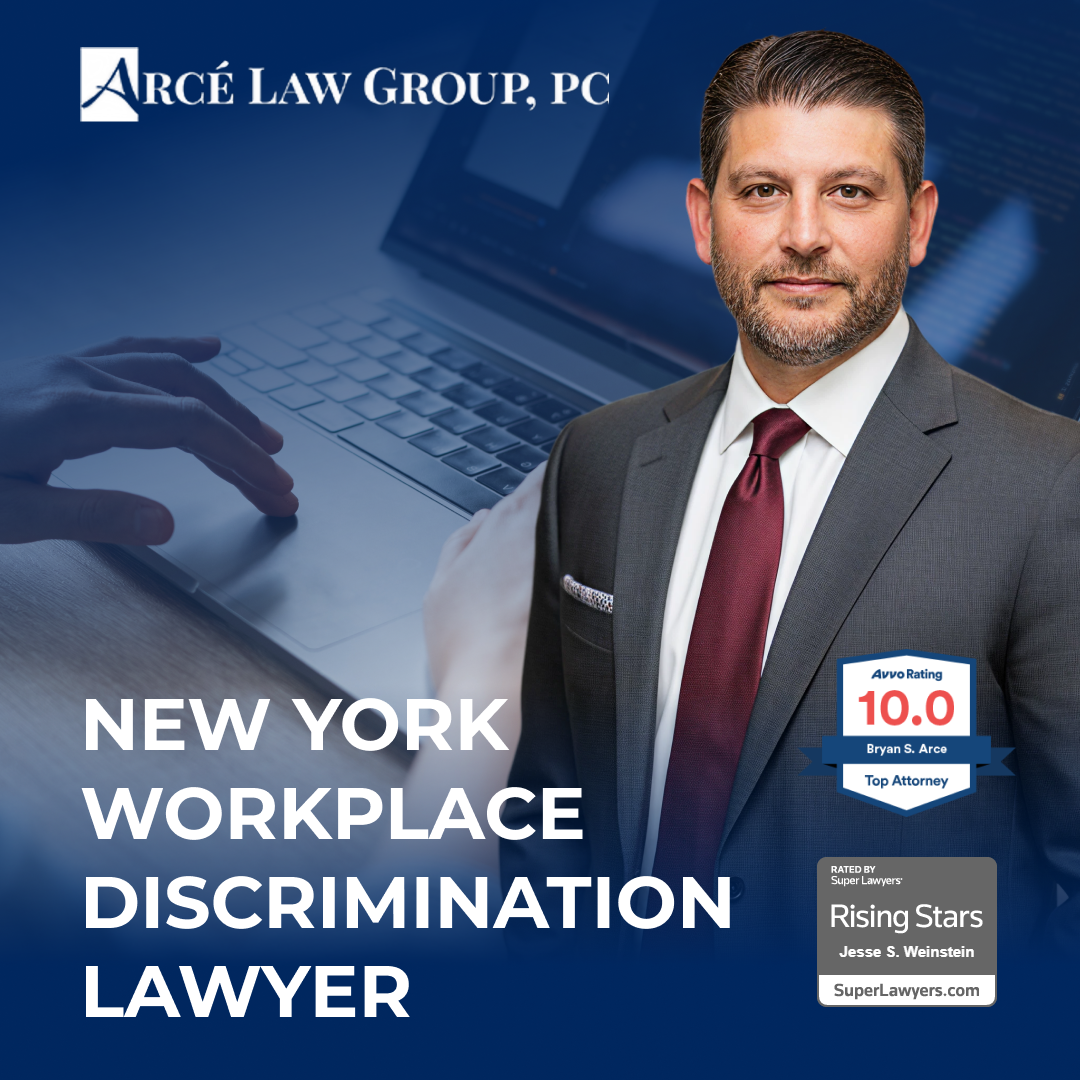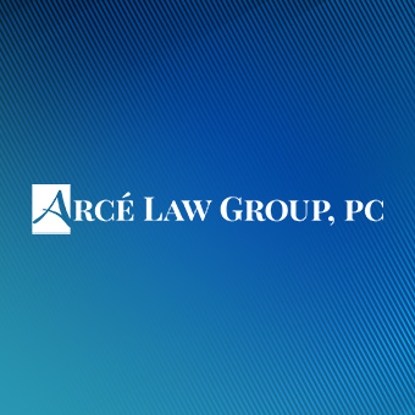
Workplace Discrimination No Fee Unless We Recover*
Protecting employees from sexual harassment, whistle blower retaliation, and discrimination. Free consultations available.
New York Sexual Harassment Lawyer
You worked hard for your career and to rise up the executive ranks doing things the right way. When you’re subjected to harassment, it undermines your personal dignity. When you uncover corporate wrongdoing, it places you in a terrible position. Arcé Law Group has over a decade of experience helping executive-level clients deal with sexual harassment cases, whistleblowing, a wide range of other employment discrimination issues.
The issues that drive these cases often have their own unique dynamics, usually driven by the underlying question of power and authority. Employees—even those who have risen to the C-suite level in their careers—can still feel vulnerable. They need a way to level the playing field. Our attorneys are there to help you do that. We chose this field of law because of our commitment to justice and fairness in the workplace.
With a proven track record of success and a hands-on approach, we want to stand by you every step of the way. From the initial consultation to the resolution of your case, we hope to be your dedicated advocates, delivering not just legal representation, but also the compassion and respect you deserve. It’s important to know that you’re not alone—we’re here to help you reclaim your voice and your rights.

Call (866) 426-7182 or contact us online today to set up a free consultation.
-
$4.025 MillionJury VerdictEmployment Discrimination for Disability Discrimination Against a Nurse
-
$2.5 MillionJury VerdictSexual Harassment/Sexual Assault of a Bartender
-
$2 MillionSettlementWhistleblower Retaliation
Empowering Employees to Take Action
See how we've helped professionals fight back against harassment and retaliation
-
“The best decision of my life was to walk through the doors of the Arce Law Group.”
The best decision of my life was to walk through the doors of the Arce Law Group. There is so much to say and not enough time or characters to fully describe my satisfaction, but overall it was a life changing experience. Christine, Bryan, and Cayetana treated me like I was family. They were open, honest, empathetic, and extremely supportive. Truly a dream team. They were sweet and authentically caring to the point that I never felt alone. Their attention to detail was on point throughout the entire process, and I got the results that I was hoping for. They exceeded my expectations by going above and beyond to advocate for me. I wish I could give them more than 5 stars because the way they championed on my behalf was out of this world. I would not hesitate to refer their services.- F M -
“Highly recommended and compassionate service.”
“Definitely highly recommended - you will not be disappointed.”- Melissa O. -
“The Best”
“He was patient with me through this whole process and answered my million and one questions, which made me feel at ease knowing I made the right decision in choosing him to assist me.”- Elaine M. -
“I Would Recommend This Firm Hands Down”
“My lawyer Laura was so kind and sweet she made me feel like I knew her for years.”- Jeancarlos S. -
“Kind & Patient”
“It was clear from our first phone call that Gregory Kirschenbaum’s compassion and devotion to his line of work were unfeigned.”- Brianna M. -
“Friendly & Supportive”
“Went to Arce Law Group for my Employment Discrimination case and was taken aback by the care and hard work put into my case.”- Mitchell M. -
“Swiftly Replied”
“Mr.Arce not only swiftly replied to my inquiry, but he also spent the time to write out a detailed response to my inquiry and guide me and how to proceed forward.”- Paul C. -
“Best Possible Outcome”
“Max Bracero was my attorney and I recommend him to anyone who needs an employment lawyer.”- Lydia K.
We Work on Contingency
There are a lot of reasons that people who suffer sexual harassment or see corporate wrongdoing decline to speak out. Concern over legal fees, even for those who work at the executive level, can loom large. We don’t ever want that to be the reason you decline to seek justice. At Arcé Law Group, we’ll take the financial risk and put it on our shoulders. We work on contingency, which means that you only pay a fee if we first secure a financial settlement for you. You get peace of mind on two fronts—the first is knowing that the means for taking care of fees is already in place. The second is the confidence that comes from knowing your goals, and those of your attorney are directly aligned. We’re all working towards justice together.
Call our office at (866) 426-7182 today.
Also Serving New Jersey, Philadelphia, D.C., and Georgia
Sadly, people often come up with new ways to mistreat one another. Sexual harassment and actions that warrant whistleblowing are only the beginning. This is evident in the many justifications used to support discriminatory practices.
Here are just a few of the ways employees are either not hired, not promoted, or generally given subpar treatment in the workplace:
Discrimination based on any of these is illegal. If it happens to you, we want to help you prove it. Not only do we have deep experience in discrimination law, but we exclusively represent employees.
Call our office at (866) 426-7182 today.



Why Choose Arcé Law Group?
Thousands of cases handled. Millions recovered. Justice for employees.
-
Dedicated to Employee AdvocacyWe focus exclusively on protecting employees, giving us a deep understanding of the challenges you face and how to fight back effectively.
-
Confidential & Compassionate GuidanceSpeaking up can be difficult, but you don’t have to do it alone. Our team provides private, judgment-free consultations to help you understand your legal options.
-
Proven Success in Employment LawSince 2011, we’ve handled thousands of cases and secured millions in verdicts and settlements for employees facing harassment, retaliation, and workplace injustice.
-
No-Cost Case Evaluations
We believe everyone deserves access to justice, which is why we offer free consultations to discuss your case with no obligation.










.2502251310180.png)
.2502251310021.png)
.2502111449195.png)
.2502111453575.png)
.2502111451166.png)
.2502111452063.png)
.2502251307554.png)
.2502251310316.png)
.2502251310406.png)